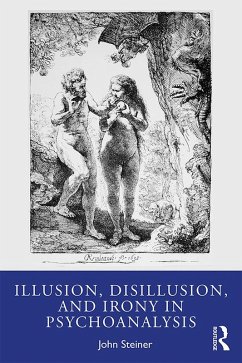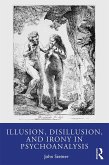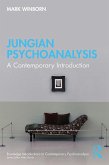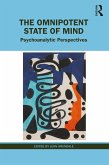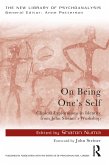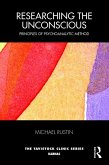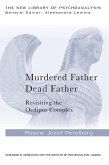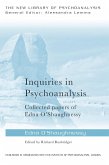Idealised phantasies which involve a timeless universe inevitably lead to disillusion in the face of reality which introduces an awareness of time, ageing, and eventually death. If the illusions are recognised as phantasy rather than treated as fact, the ideal can be internalised as a symbol and serve as a measure of excellence. Steiner shows that the cruelty of truth needs to be recognised, as well as the deceptive nature of illusion, and that relinquishing omnipotence is a critical and difficult developmental task that is relived in analysis.
Illusion, Disillusion, and Irony in Psychoanalysis will be of great use to the psychoanalyst or psychotherapist seeking to understand the patient's withdrawal into a phantasy world, and the struggle to allow the impact of reality.
Dieser Download kann aus rechtlichen Gründen nur mit Rechnungsadresse in A, B, BG, CY, CZ, D, DK, EW, E, FIN, F, GR, HR, H, IRL, I, LT, L, LR, M, NL, PL, P, R, S, SLO, SK ausgeliefert werden.
Ronald Britton FRCPsych, Distinguished Fellow British Psychoanalytical Society.
"The need to withdraw into a world of illusion, to create our own personal Garden of Eden is, Steiner shows us, 'precisely what many of our patients do and the same is true of course for all of us since we are all patients and all have serious problems with reality.'
Nothing is both one thing and another in Steiner's vision and this is best appreciated by those of us who are capable of embracing an ironic vision. It is irony that allows us simultaneously to empathize with our analysands and to observe them from our perspective as outsiders.
Steiner moves gracefully from Sophocles to Milton to Ibsen, Keats, Cervantes, Shakespeare, and many others. At each stop we find ourselves surprised and enlightened by the way he develops his theme in the context of works that are long familiar to us."
From the forward by Jay Greenberg, Training and Supervising Analyst, William Alanson White Institute; Editor, The Psychoanalytic Quarterly

